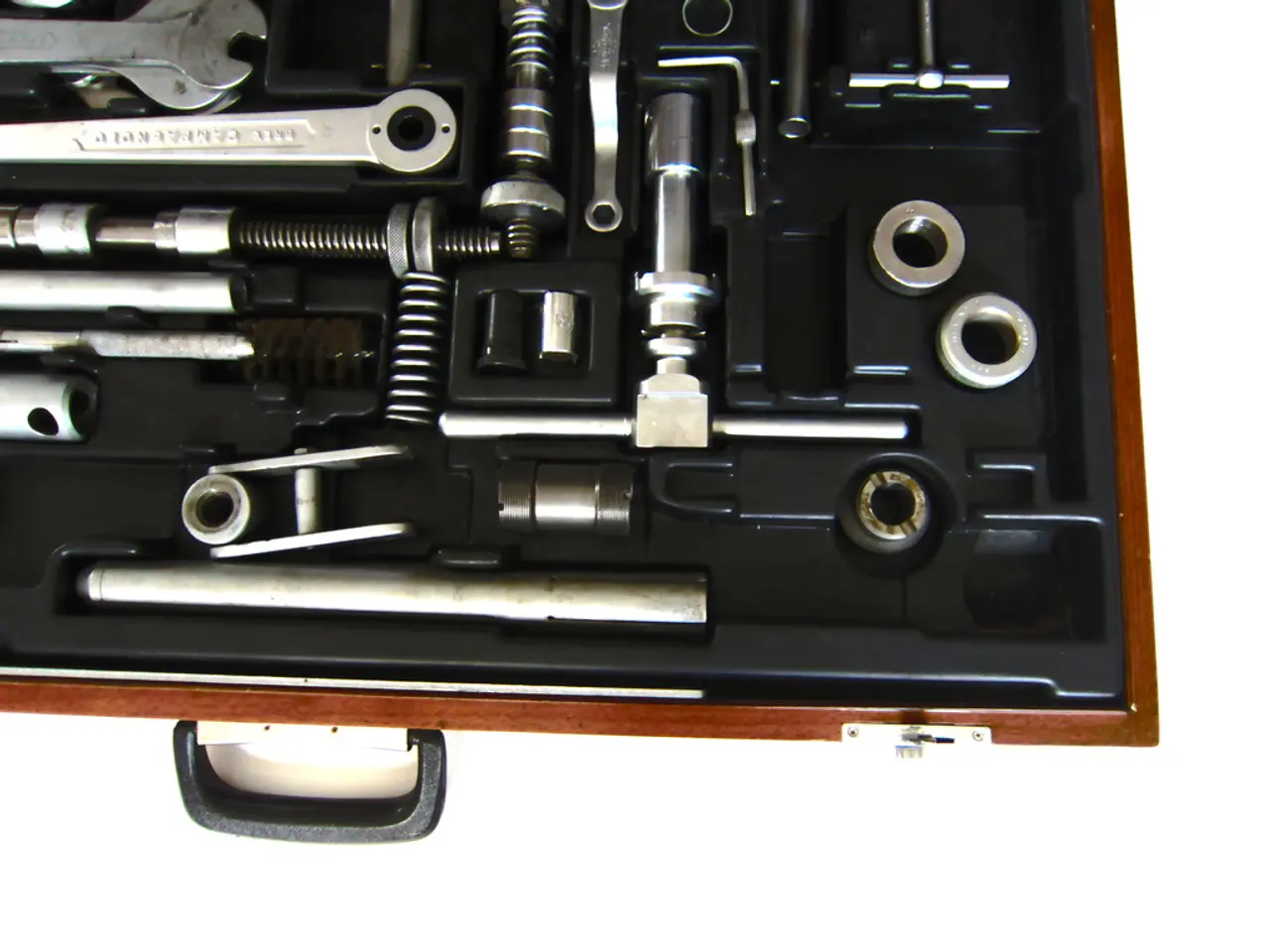Building bridges is crucial, and Gitta Connemann advocates for groups like the AIF as key facilitators in this endeavour.
The Alliance for Industry and Research e.V. (AIF), a key bridge builder for strengthening the competitiveness of German companies, held its 72nd Annual Meeting in Berlin on July 7, 2025. The event saw the attendance of Parliamentary State Secretary Gitta Connemann, who emphasised the high priority of the topic of "innovation" in the coalition and described it as a "continuous red thread."
The focus of AIF's content now lies in strengthening industrial research in Germany, with an emphasis on cross-industry knowledge transfer and leading networking between business, science, and politics. In line with this new direction, German industrial research funding priorities aim to revitalize the economy, expand technological leadership, and strengthen climate-neutral and digital innovation initiatives.
German corporations are planning to invest around €631 billion over the next three years to foster economic growth, enhance competitiveness, and maintain or extend technological leadership. These investments target both manufacturing facilities and research efforts, underscoring the importance of industrial research funding as part of economic recovery.
The German government, led by a coalition including the Christian Democrats, the Social Union, and the Social Democrats, has approved borrowing €500 billion to create special funds supporting government investments in infrastructure, energy networks, digitization, and research. This move directly links industrial research funding to improving the country’s economic landscape.
Germany, aiming to reach climate neutrality by 2045, aligns its industrial research funding with the Net-Zero Industry Act (NZIA) legislation enacted in 2024. This act focuses on boosting production and innovation in climate-friendly technologies such as electric batteries, hydrogen solutions, solar panels, wind power, and heat pumps. The Act streamlines approval processes and encourages investment in sustainable technology development, reinforcing Germany’s industrial research priorities around sustainability.
Plans to expand digital research capacities are underway, including the creation of a leading European computer sciences institute by the Hasso Plattner Institute, expected to be completed by 2035. Additionally, industrial players are advocating for government support to build AI gigafactories in Germany to enhance AI technology production and innovation ecosystems.
The German Research Foundation (DFG) supports universities of applied sciences with funding initiatives aimed at linking basic research with industrial applications. Approved projects span diverse fields such as cellular transport, hydrogen fuel cells, fluid mechanics, and supply chain resilience, indicating a commitment to practical, application-oriented research within industrial funding priorities.
The AIF press contact is Frauke Frodl, Press spokeswoman of the AIF. The name, website, and logo of AIF have been updated and made more compact since the beginning of the year. The responsibility for industrial research programs ZIM, IGF, and the promotion of innovation competence with non-profit industrial research institutions (INNO-KOM) remains with the Federal Ministry of Economics and Technology. The German Bundestag has confirmed over-planned authorization commitments of up to 272 million euros for industrial research funding programs.
In addition, a significant reduction is planned for the ZIM industrial research program, and the AIF board demands a budget of 1 billion euros for industrial research, with 600 million euros for ZIM, 300 million euros for IGF, and 100 million euros for INNO-KOM. The MIT chairwoman engaged in an extensive exchange with the representatives of the AIF research associations. Connemann announced a significant reduction in bureaucracy for industrial research funding programs.
Thomas Reiche, AIF board member, expresses appreciation for the high-ranking representative of the BMWi, Gitta Connemann. According to Reiche, the Alliance for Industry and Research has successfully restarted in the past twelve months.
Together, these outlines from corporate leaders like Roland Busch (Siemens CEO), government officials including Gitta Connemann (Christian Democrat), and institutional stakeholders reveal a comprehensive strategy to boost industrial research funding in Germany in 2025, emphasizing economic revitalization, technological leadership, climate goals, and digital innovation as core pillars.
- In alignment with the AIF's new focus, German industrial research funding priorities are geared towards revitalizing the economy, expanding technological leadership, and strengthening climate-neutral and digital innovation initiatives, particularly in areas such as electric batteries, hydrogen solutions, solar panels, wind power, and heat pumps.
- The German government, recognizing the importance of industrial research in economic recovery, has approved borrowing €500 billion to support investments in infrastructure, energy networks, digitization, and research, with a specific emphasis on education-and-self-development and technology.




